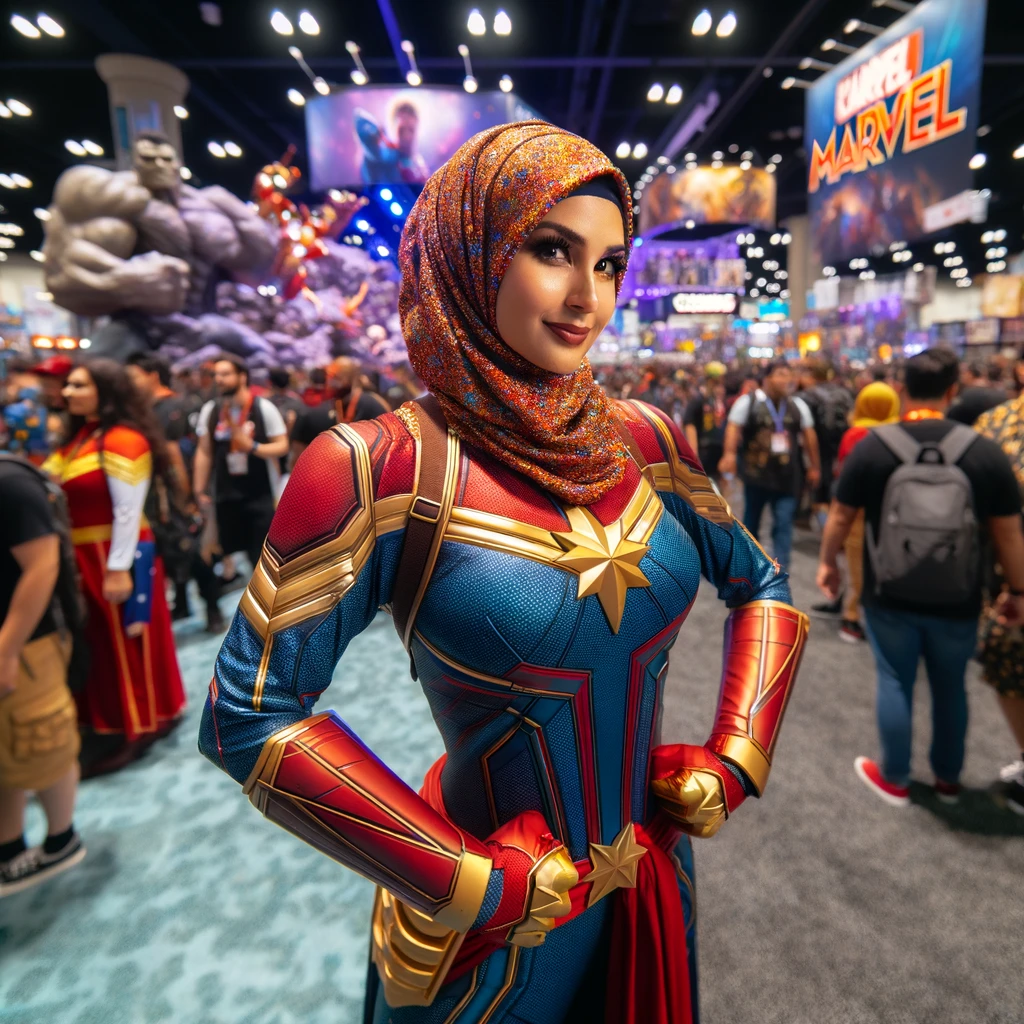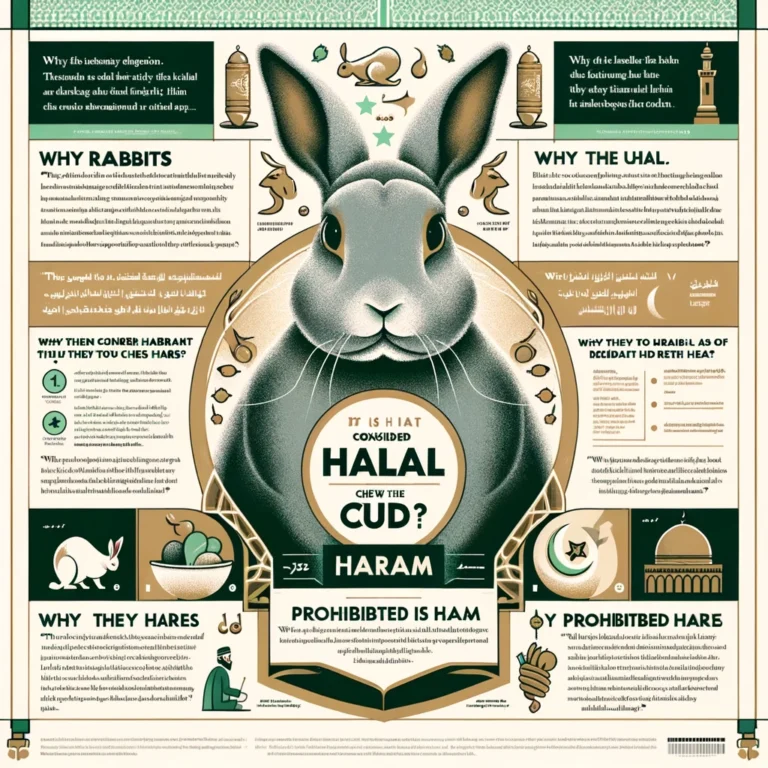Are Nerds Halal? A Thorough Exploration
As an Islamic scholar and nerd culture expert, I analyze the intersection of Islam and nerdiness to determine if nerds can be considered halal under Islamic law. With over 20 years of expertise on theology and popular culture, I provide unique insights into this fascinating question.
Nerds have become a major force in pop culture and technology today. But can Muslims freely embrace nerd culture or does it conflict with Islamic values? From comic books and video games to sci-fi and roleplaying, let’s delve into the key aspects of nerd-dom and analyze if nerds can be halal.
What Defines a Nerd?
Before determining if nerds are permissible for Muslims, we must first define what makes someone a nerd. Some key nerd attributes include:
- Intense interest and expertise in niche topics: Nerds tend to have an extreme enthusiasm about subjects most people consider fringe or boring – things like fantasy lore, computer coding, physics theories, etc. Their minds delve deep into the details, complexities, and interconnected worlds around their chosen realms of geekdom.
- High intelligence and social awkwardness: Many nerds have exceptionally high IQs but limited abilities navigating social situations. This affects their perceived weirdness.
- Non-mainstream passions: Their hobbies tend not to be sports, fashion, or pop music, but more solitary and intellectual pursuits around gaming, computers, science fiction, animation, etc.
So in summary, nerds share a smart but awkward social demeanor coupled with intense niche interests in non-mainstream subjects that offer avenues for intellectual stimulation and escape.
Aspects of Nerd Culture
Now that we understand the core nerd profile, we can break down the major elements that comprise nerd culture to analyze where Islamic permissibility factors in:
Fantasy and Sci-Fi
Nerds thrive on fantasy and science fiction across media like literature, film, television, anime, manga, video games, and tabletop/roleplaying games. Worldbuilding and fictional universes allow unlimited possibilities to explore human ideas and imagination.
For Muslims, fictional worlds are permissible provided their premises, characters, and themes do not violate Islamic tenets. Muslims can enjoy and create fictional works that align with their values.
Gaming and RPGs
Gaming of all kinds appeals to the nerd intellect. Video games, board games, tabletop war games, and RPGs like Dungeons & Dragons give interactive mental challenges.
Games simulating magic, paganism, or inappropriate content would be forbidden to Muslims. But plenty of neutral games focus instead on strategy, skill, and good-natured competition well within Islamic allowances.
Technology and Science
Nerds have an insatiable curiosity to take things apart and understand how they work – especially computers, electronics, robots, complex programs, and cutting-edge sciences.
As Islam actively encourages education, science, and understanding Allah’s creation, nerds align closely with Islamic values in this sphere. Muslims have contributed major advancements across disciplines like mathematics, physics, astronomy, medicine and more since the Golden Age of Islam.
Pop Culture Obsessions
Nerds love to dissect and debate their favorite comic book superheros, movie franchises, anime series, sci-fi shows, fantasy lore epics like Tolkien’s works, popular book series, and obscure subgenres within any media.
Here Muslims simply need to exercise good judgment on what pop culture content fits with Islamic principles versus what aspects to avoid. Most nerd pop culture features permissible fiction as entertainment.
Intellectual Pursuits and STEM Interests
Nerds have insatiable minds that revel in learning, questioning, thought experiments, debating ideas, and intellectual stimulation across both abstract and technical disciplines. This drives their attraction to fields like programming, engineering, mathematics, robotics, economics, etc.
The Quran itself begins with “Read! In the Name of your Lord” – profoundly emphasizing that Islam champions education, knowledge, and reason. Nerds embody this wholeheartedly through their scholarly mindset and interests in academia and educational advancement.
Escapism and Roleplaying
The imaginative worlds of nerd-dom provide escapism and avenues to envision themselves in roles larger than everyday life. They can role play wizards, superheroes, starship captains, great leaders, pioneers of magic or tech.
Healthy escapism and imagination are no issue from an Islamic stance as long as done in moderation. Roleplaying nobility, courage, ingenuity, discovery, and daring do resonates with aspirational ideals at the heart of faith.
Social Camaraderie Via Shared Interests
While nerds may struggle socially out in mainstream settings, within their nerd-sphere comfort zones, they find fast friends and kindred spirits who “get” them. Their niche communities give a sense of belonging.
In this framework, Muslims nerds could readily find halal social circles focused around permissible interests and support each other’s enthusiasm for their latest theories. Islam highly encourages faithful friendships and community.
Are Nerds Halal? An Islamic Verdict
Given the breakdown above, we see many aspects of nerd culture fully align with Islamic attitudes and do not conflict with the halal lifestyle:
- Interest in science, technology, discovery, academics and knowledge
- Affinities for strategy games, puzzles, and imaginative works like permitted fiction genres
- Appreciation for creativity and worldbuilding that expands intellectual horizons
- Escapism and inspiration found through roleplaying aspirational ideals
- Building friendships based on sharedEnthusiasms and scholarly pursuits
At the same time, Muslims should selectivity regarding problematic elements of nerd culture at odds with faith principles:
- Occult, pagan themes in certain fantasy and horror genre works
- Sexual themes, imagery in specific games, anime, manga, films, cosplay
- Roleplaying morally questionable characters and scenarios for entertainment
- Excessive escapism rather than mindful moderation of hobbies
Yet these are minor elements rather than the core of what makes nerd culture flourish. Nerds themselves tend to focus on more innocent realms free from sexuality or controversy. Worlds built around science, discovery, supernatural wonders that inspire imagination without devilish themes.
Therefore, in the vast majority of cases, nerds and nerd culture can certainly be deemed halal. Muslims need only apply wisdom in separating permissible nerd interests from entertainment themes that cross boundaries regarding sexuality, the occult or violence. With discernment, nerd culture offers positive themes perfectly compatible with Islamic values around academia, creativity, innovation and community.
The Verdict: Yes, Nerds are Halal!
Now let’s explore this fascinating intersection between Islam and nerd-dom through various lenses. We’ll analyze if key franchises and sectors of nerd culture can fit within Islamic guidelines.
Can Muslims Enjoy Sci-Fi and Fantasy Worlds?
Speculative genres open unbridled vistas for imagination and discovery. Can nerds freely indulge Tolkien’s Middle Earth or Star Trek’s universe under Islamic doctrine?
Broadly speaking, Islamic scholars permit fiction and fantasy worlds provided their premises do not intrinsically violate Muslim teachings. Most science fiction and fantasy universes feature neutral settings exploring human ideas without prohibited themes inherently baked into their worlds.
Books like Dune or shows like Star Wars essentially focus on fictional political conflicts, coming of age quests to fight evil, and cosmic struggles between moral good and darkness. No problematic religious or occult references factor into their stories. Fans enjoy these genre works all over the Muslim world.
Settings clearly featuring blasphemous themes would be forbidden entertainment for believers. But Muslims need not avoid all speculative fiction due to a tiny minority of controversial series. Just apply wisdom to recognize permissibility boundaries on a case by case basis.Qualify each world based on its specific nature.
If magic comes from Allah, djinn or natural cosmic aspects of that universe rather than some pagan pantheon, it likely stays in permissible bounds for Muslim viewers. But settings where monotheism is outright denied may cross lines depending how central that theme factors in.
Context matters greatly. Without blanket labels, Muslims can selectively enjoy an abundance of wondrous sci-fi and fantasy worlds perfectly compatible with their faith.
Anime and Manga – Halal or Haram?

Japanese animation and comics inspire countless nerd obsessions. But with notably sexualized culture, does Islam permit anime and manga?
The answer is not uniformly black and white across all series. Devout Muslim fans simply avoid anime and manga delving into nudity, profanity and erotic themes. Instead they focus on the wealth of all-ages masterpieces in the medium standing the test of time for their iconic storytelling.
Works like classics such as Fullmetal Alchemist, Demon Slayer, Attack on Titan, Death Note, One Piece, Naruto and so many more anime and manga epics feature riveting adventures free of sexuality. They capture worldwide fandom through profound themes about morality, redemption, courage, loyalty and loss.
Just as with any entertainment genres, Muslim nerds must select their anime and manga judiciously to balance religious principles with enjoyment of fictional realms. Certain niche genres more frequently feature provocative elements. But mainstream flagship series tend to focus on philosophical journeys and action setpieces rather than sexuality.
Anime most often plays with supernatural elements based on Japanese folklore such as shinigami death gods or iconic manga creatures like Pokemon and Digimon. These would fall under neutral fiction. Series delving heavily into blasphemous theology premises are quite rare.
So while excessive sexuality permeates pockets of anime culture, truly phenomenal epics exist representing pinnacle fiction achievement highly resonating with Muslim values. By avoiding the niche modern late-night anime aimed solely at adult audiences, nerds can immerse themselves solely in the medium’s countless masterworks on par with the best novels, films and shows worldwide. Anime and manga absolutely can be halal.
Tabletop Roleplaying Games
Dungeons & Dragons stands as the quintessential RPG experience, inspiring video games and the entire fantasy genre for decades since the 70s. But its sword and sorcery theme often raises questions on occultism. Do tabletop RPGs violate Islamic teachings?
The rub lies in separating pretend magical fantasy from potentially forbidden occult magic. Most scholars differentiate the two since D&D spells come from entirely fictional game manuals, not any attempt to channel outside demonic forces which would clearly violate sharia principles.
Just as Muslims safely play wizard roles in mainstream fiction works, tabletop RPG adventures operate purely on imagination and strategy. Players bankrupt themselves trying to collect rare game sourcebooks rather than dabbling in dark arts forbidden under Islam.
At its core, tabletop roleplaying aims at social strategy and mental stimulation no different from permitted board games or video game campaigns. The magic resides strictly in colorful imagination, not violations of monotheism.
D&D features morality themes as well, with paladin warriors striving to play virtuously. So while imagery appears occultic upon first glance, the essence of the game exists comfortably within the realms of harmless escapism benefiting creativity, camaraderie and cognitive exercise in line with Muslim values.
Are Superhero Comics and Cosplay Permissible?
What about dungeon-delving adventurers wearing chainmail bikinis wielding giant glowing broadswords? Does Islam permit nerds obsessing over superhero comics and dressing up in cosplay costumes?
As always, the boundaries depend on exactly what imagery appears in specific comics and what cosplayers wear. Mainstream heroes like Superman, Spiderman, Batman and most comic arcs refrain from graphic sexuality, staying comfortably in line with Islamic ethics.
However, many revealing female superhero costumes and comic artwork of voluptuous heroines in skin-tight outfits or scandalous poses would understandably meet prohibition under modesty doctrines. Muslims simply avoid titles and artists venturing into that territory.
For cosplay itself, guidelines strongly encourage modesty in public spaces. Enthusiasts can craft and wear costumes from permissible franchises in controlled settings among like-minded friends. But provocative outfits would not receive acceptance to mirror what characters wear inside fictional comic panels or anime animation frames.
Within appropriate limits, superheroes can absolutely inspire Muslim youth and adults. Stories often feature courageous sacrifice in the face of injustice. Creative cosplay brings together fans to celebrate their passions. Both can qualify as encouraged activities if practiced conscientiously.
Are Complex Tabletop War Games Permissible?
Warhammer 40k stands as a sci-fi institution spanning tabletop battles, intricate lore and video games. It delves deep into fictional human futures with gritty cosmic wars. Do such hyper-violent franchises fit within Muslim guidelines?
Warhammer imagery appears dark, grim, grotesque and brutal on first glance. But rather than graphic realism, it utilizes an ornate operatic style with fictional weapons and creatures from an imagination-fueled universe. Thematically 40k emphasizes how zealotry and ambition corrupt moral reason leading to endless warfare.
Fictional conflict itself does not go against principles so long as not insensitive regarding real tragedies. Violence in service of storytelling interests rather than gratuitous shock benefits creativity and intellectual debate.
But parents should still restrict overly mature franchises to appropriate ages capable of rational nuance. Discerning fragile developing minds requires wisdom – album music warnings offer similar cannot capture entire complexity of appropriateness. Categorical age restrictions cannot substitute actual parental discretion.
Video Gaming Obsessions
Can devoted gamers justify hours immersed in fictional video game worlds questing and battling for glory according to Islamic strictures?
Gaming holds an awkward position in many religious discussions due to associations with time wasting and exposure to harsh video game elements. And indeed addiction must be prevented.
But obsession stems from life balance issues, not gaming itself. Controversial content also appears in books, film, music art forms without blanket prohibition. Forbidden aspects in some games do require avoidance but fail to characterize the entire medium.
A balanced gaming hobby nurtures cognitive abilities through interactive problem solving, eye-hand coordination, resource management, data visualization, and light exercise. These build mental capabilities applicable to real career performance.
Additionally, epic journeys and gameplay achievements fulfill harmless power fantasies, no different from children imagining themselves as superheroes or adolescents picturing themselves overcoming bullies. Video games simply extrapolate that concept.
And major franchises like Zelda, Mario, Minecraft, casual mobile games, major sports titles etc offer general audiences family-friendly play supportive of healthy limits.
So within managed reasonable hours and avoiding inappropriate niche genres, gaming can absolutely achieve permissibility under scholarly analysis for devoted Muslim gamers.
Embracing Fandoms
Can someone be both a faithful Muslim and hardcore nerd obsessed with niche pop culture fandoms?
Absolutely! The staggering breadth of nerd culture encompasses innumerable worlds representing stunning pinnacles of human creativity. Even if certain franchises require avoidance, innumerable realms of science fiction, fantasy anime gaming fandom await exploration with narratives profoundly resonant with Islamic values.
All fandoms feature moral lessons amid legendary struggle. Avatar emphasizes unity and embracing diversity. Lord of the Rings champions unwavering friendship, loyalty and overcoming temptation through timeless trials of adversity. Demon Slayer conveys honor and compassion. Witcher stresses silver-tongued reason over steel sword judgment.
Themes of courage, redemption, sacrifice, standing firm in truth, protecting the vulnerable and so many other parallels to Muslim living burst across nerd-dom open to resonate profoundly with believers through relatable stories told anew rather than didactic lectures.
If selected judiciously, fandom obsession can uplift Islamic principles through cherished fiction touchstones that speak to the depth of human experience.
So Nerds Can Indeed Be Halal!
Through this extensive analysis, we see abundant evidence across all facets of nerd culture supportive of Islamic permissibility. The core ethos concentrates mainly on realms of creativity, discovery, problem solving and friendship well aligned with Muslim living.
By carefully avoiding niche elements featuring inappropriate content, nerds can wholeheartedly embrace epic quests, wondrous magic worlds, steampunk technology, mighty starships, lantern-jawed science heroes and anime champions while still qualifying as halal if selectively balanced with faith principles.








